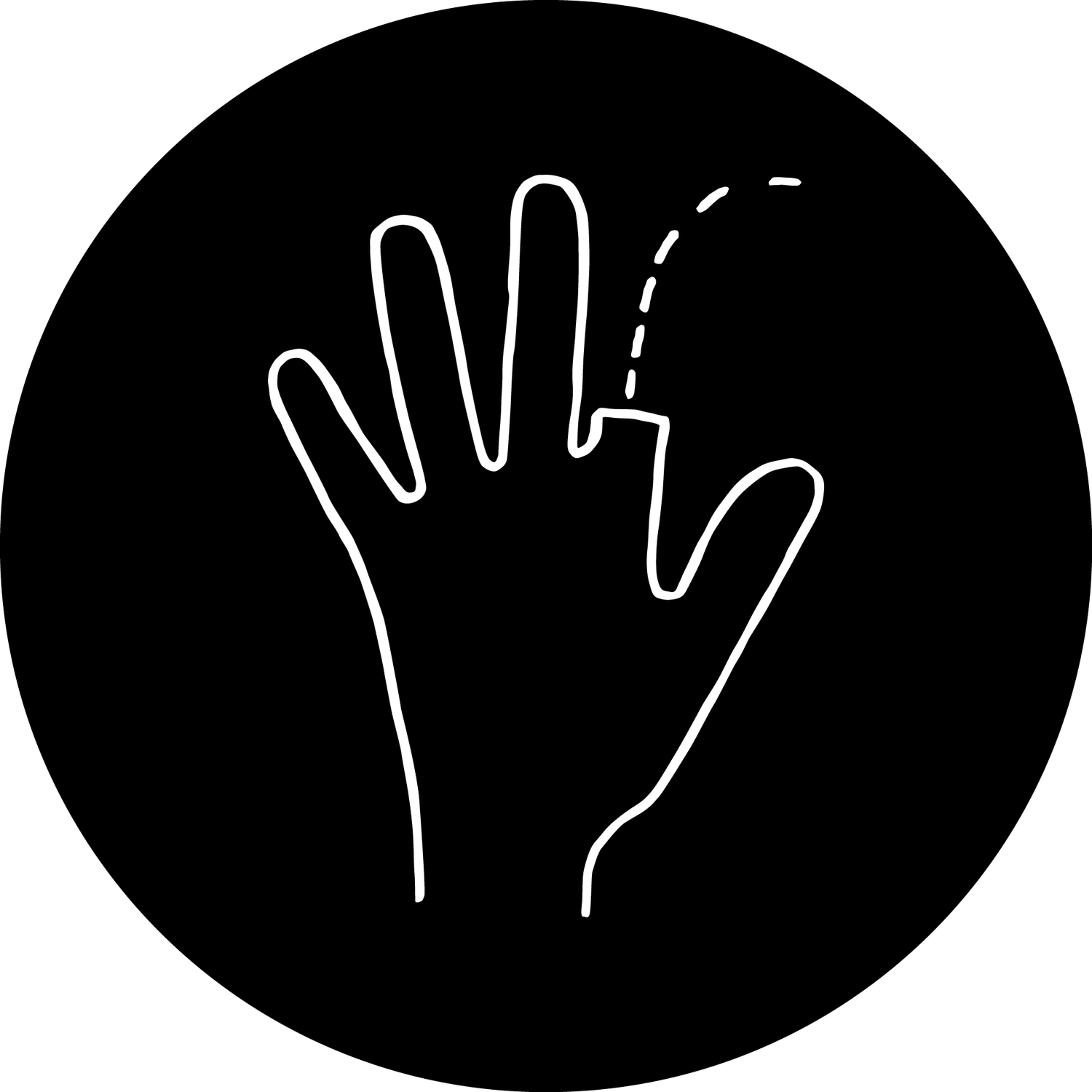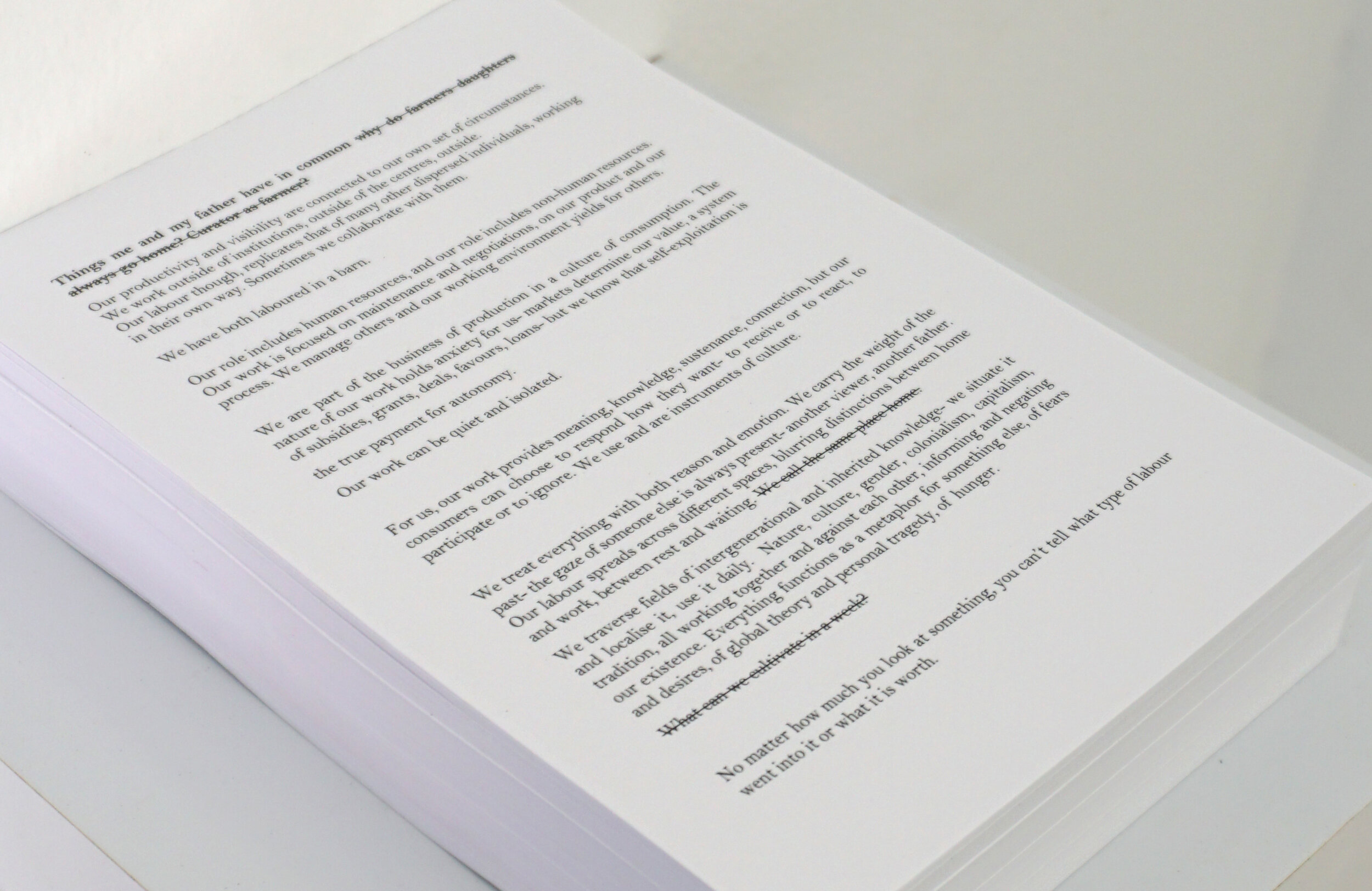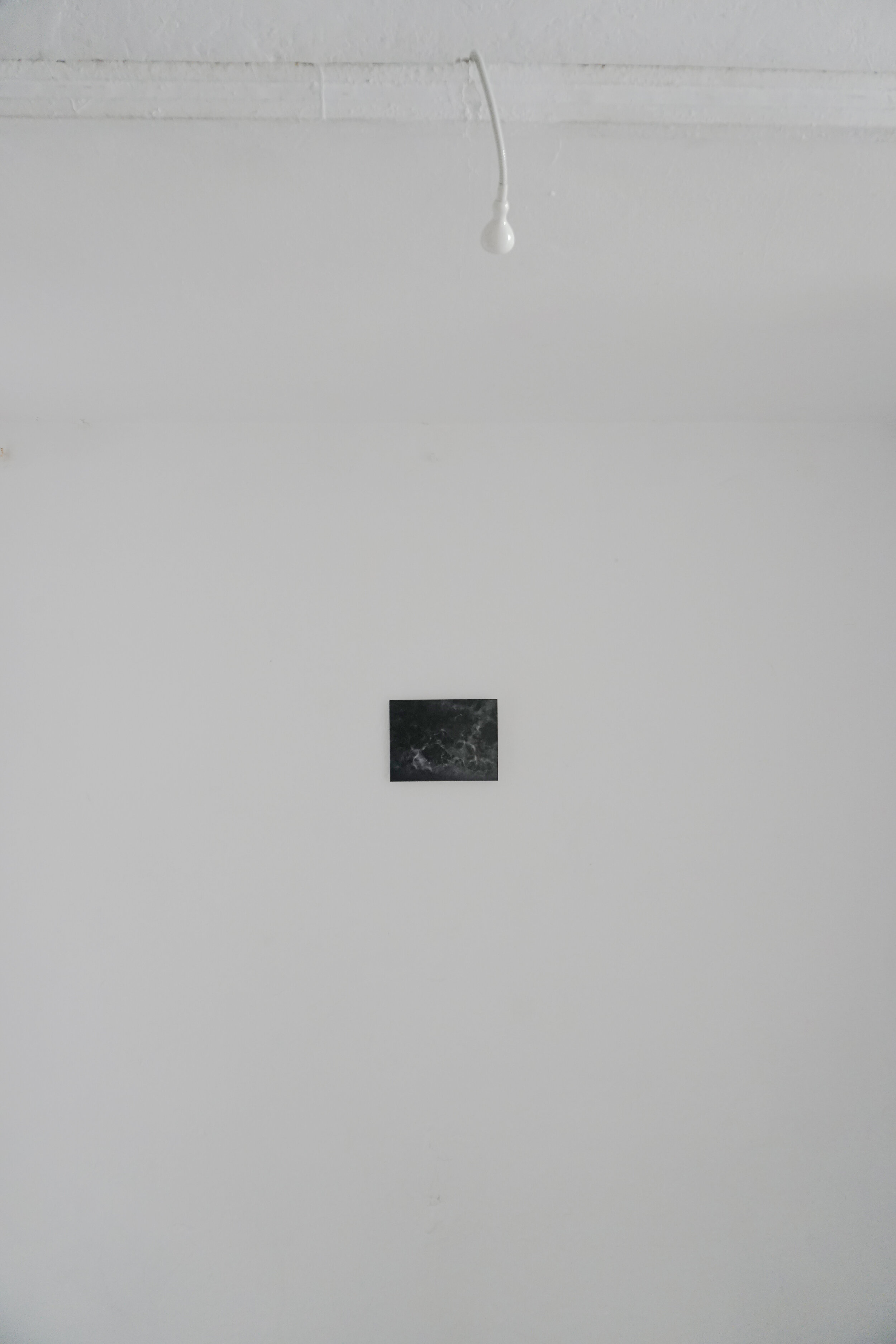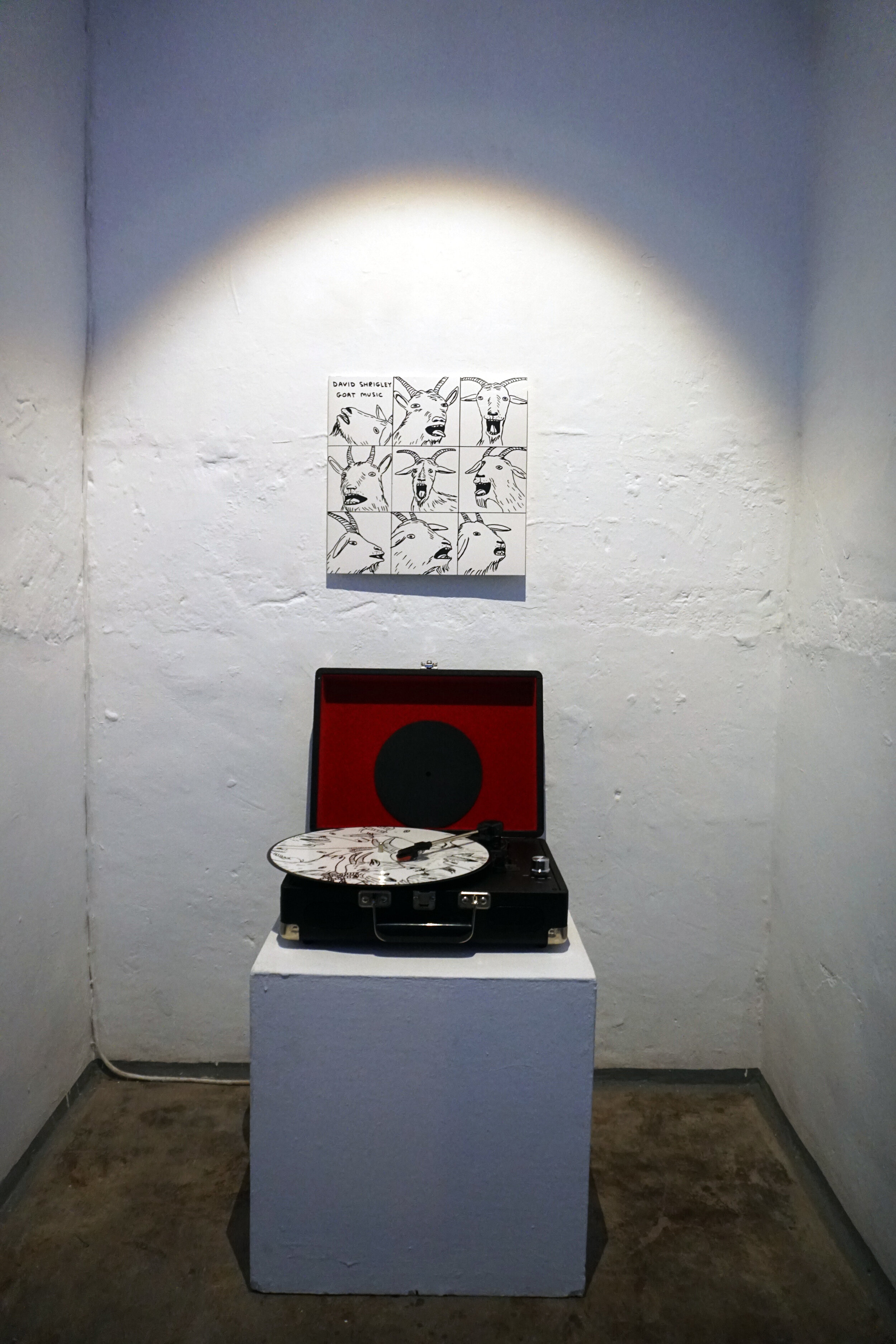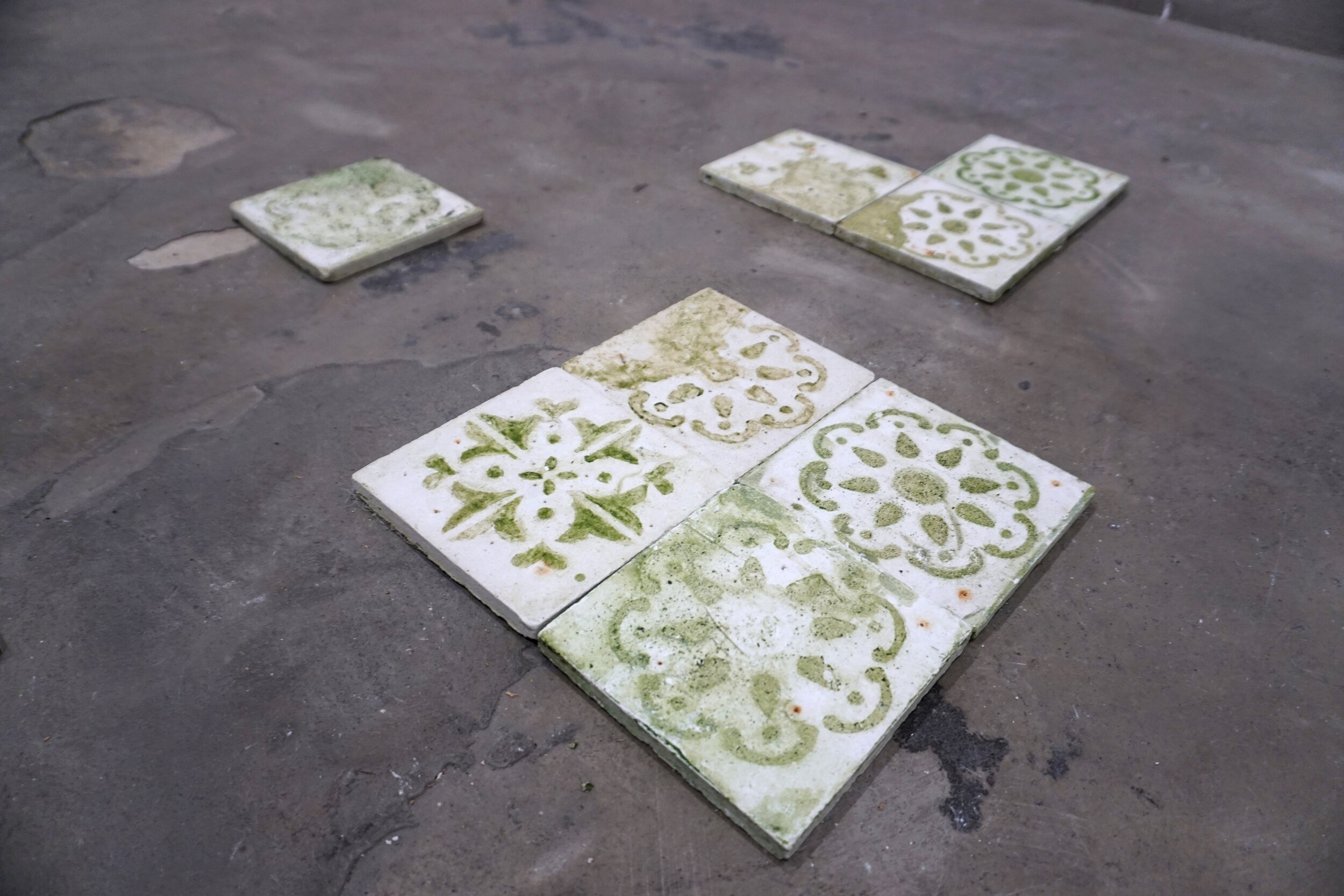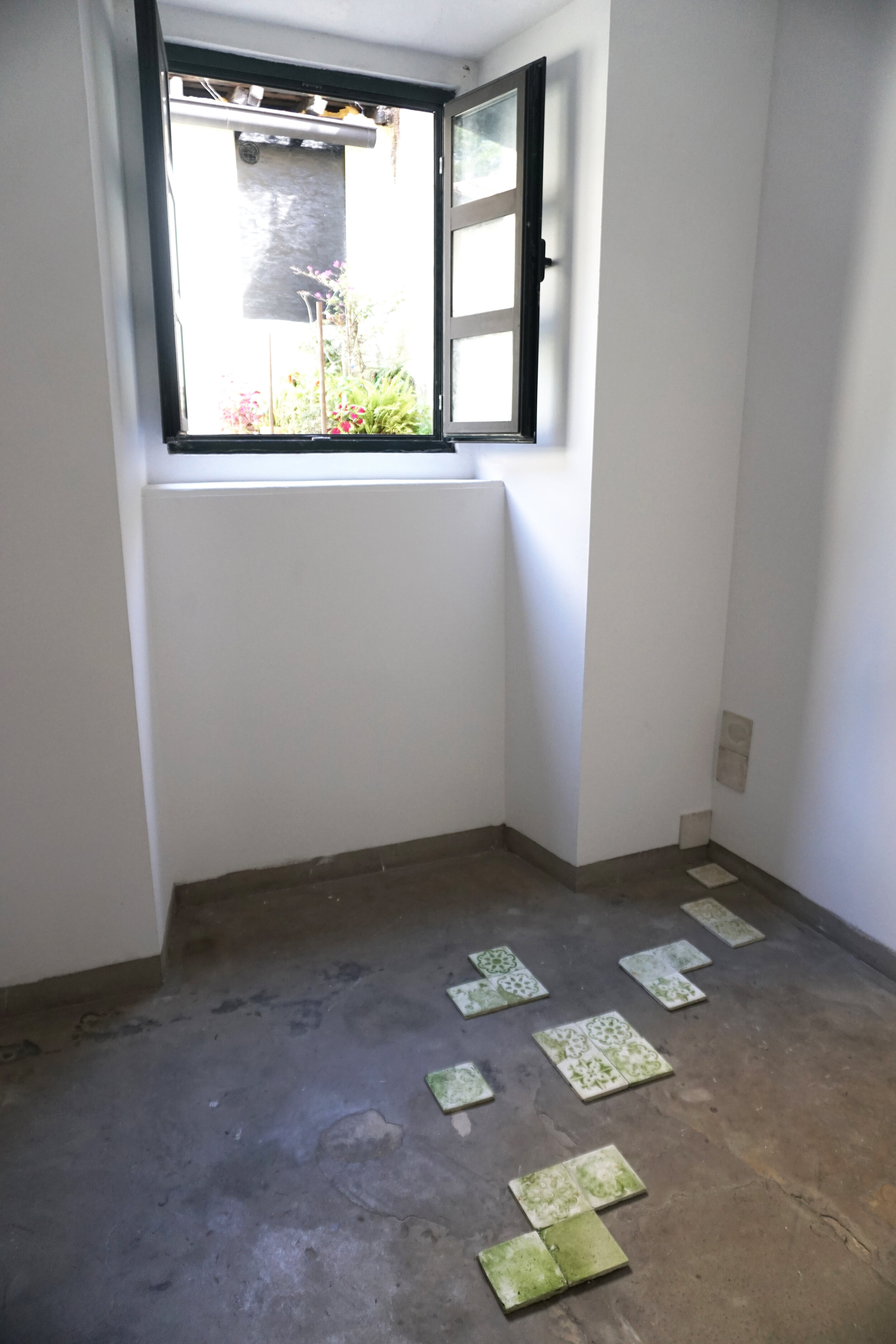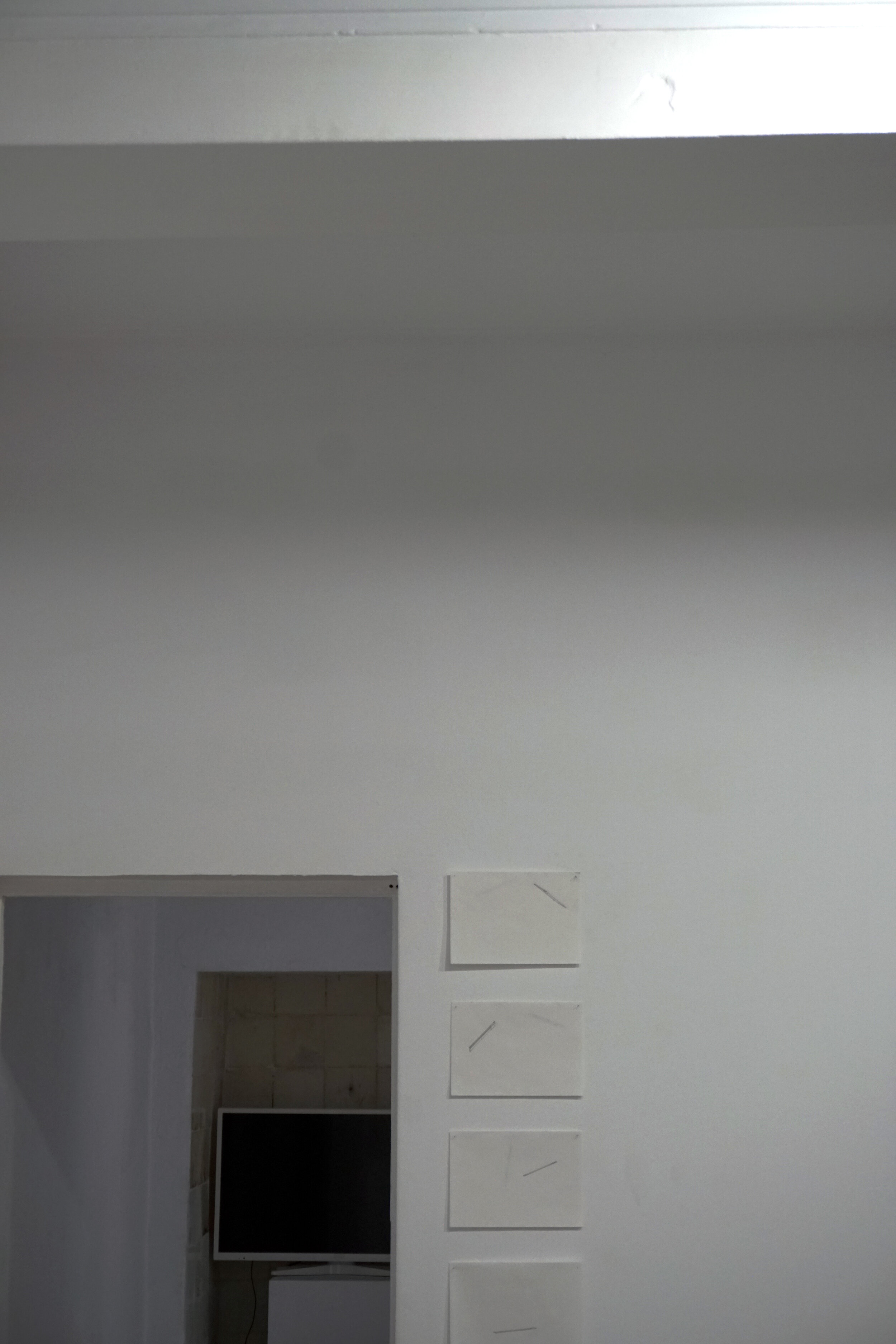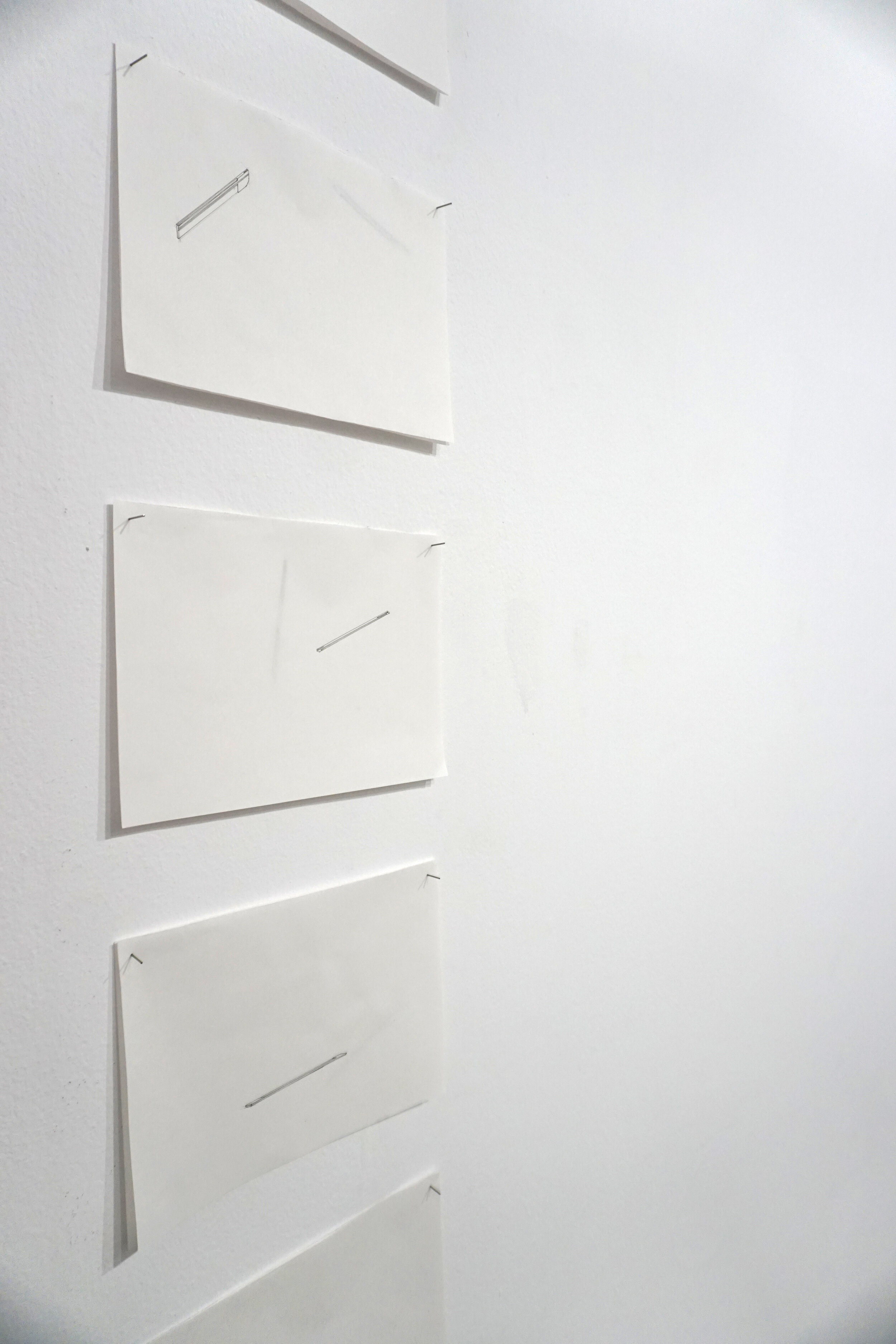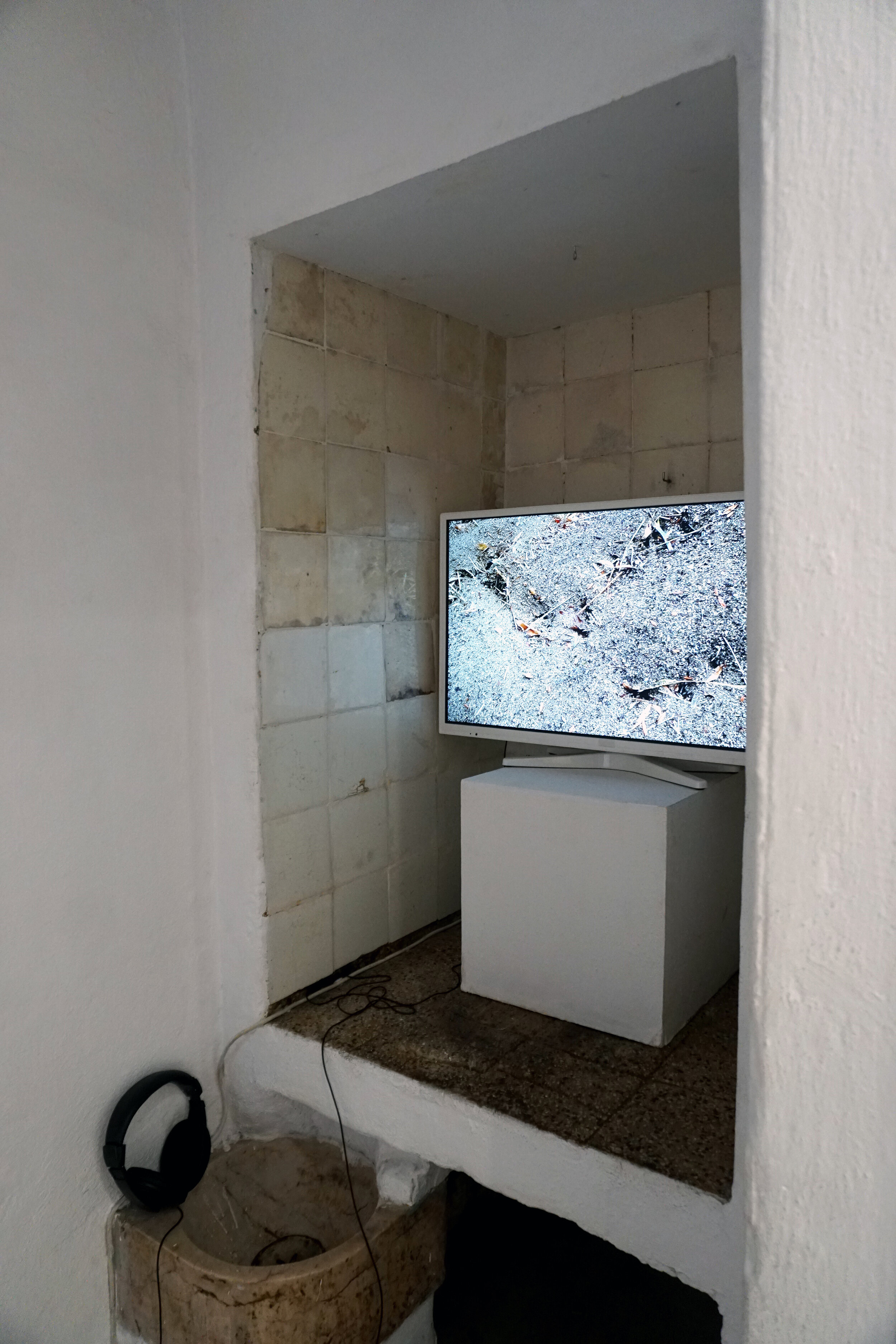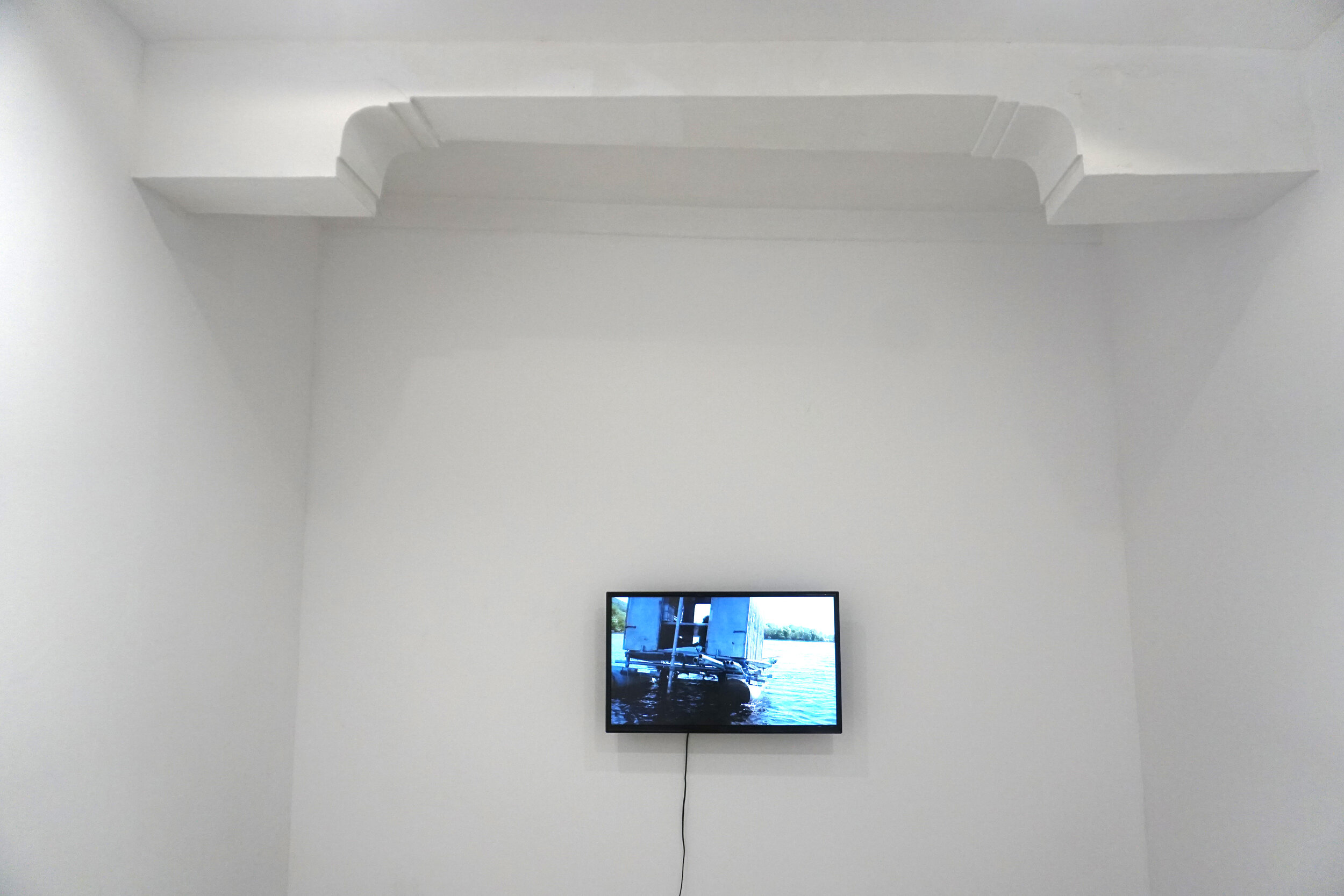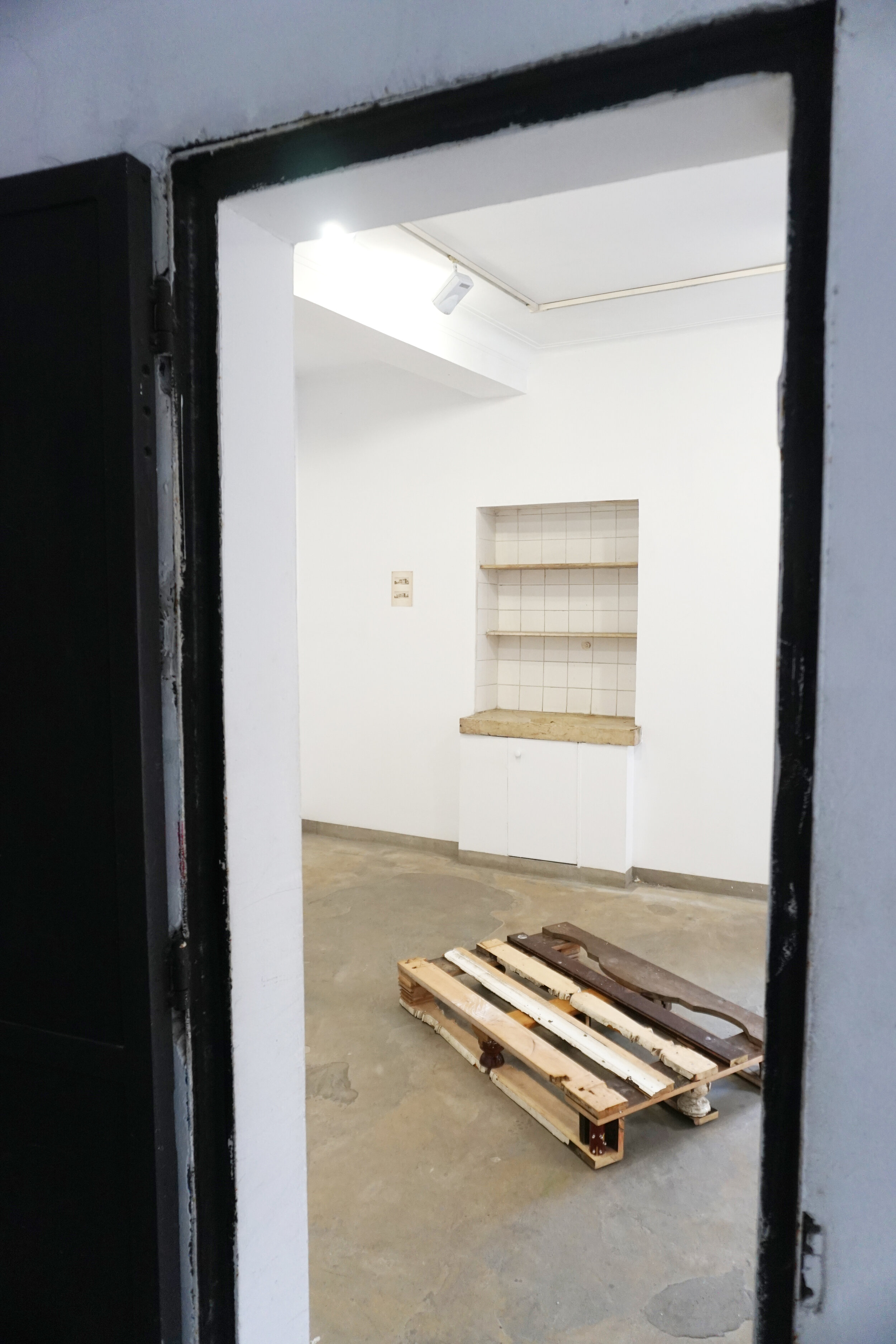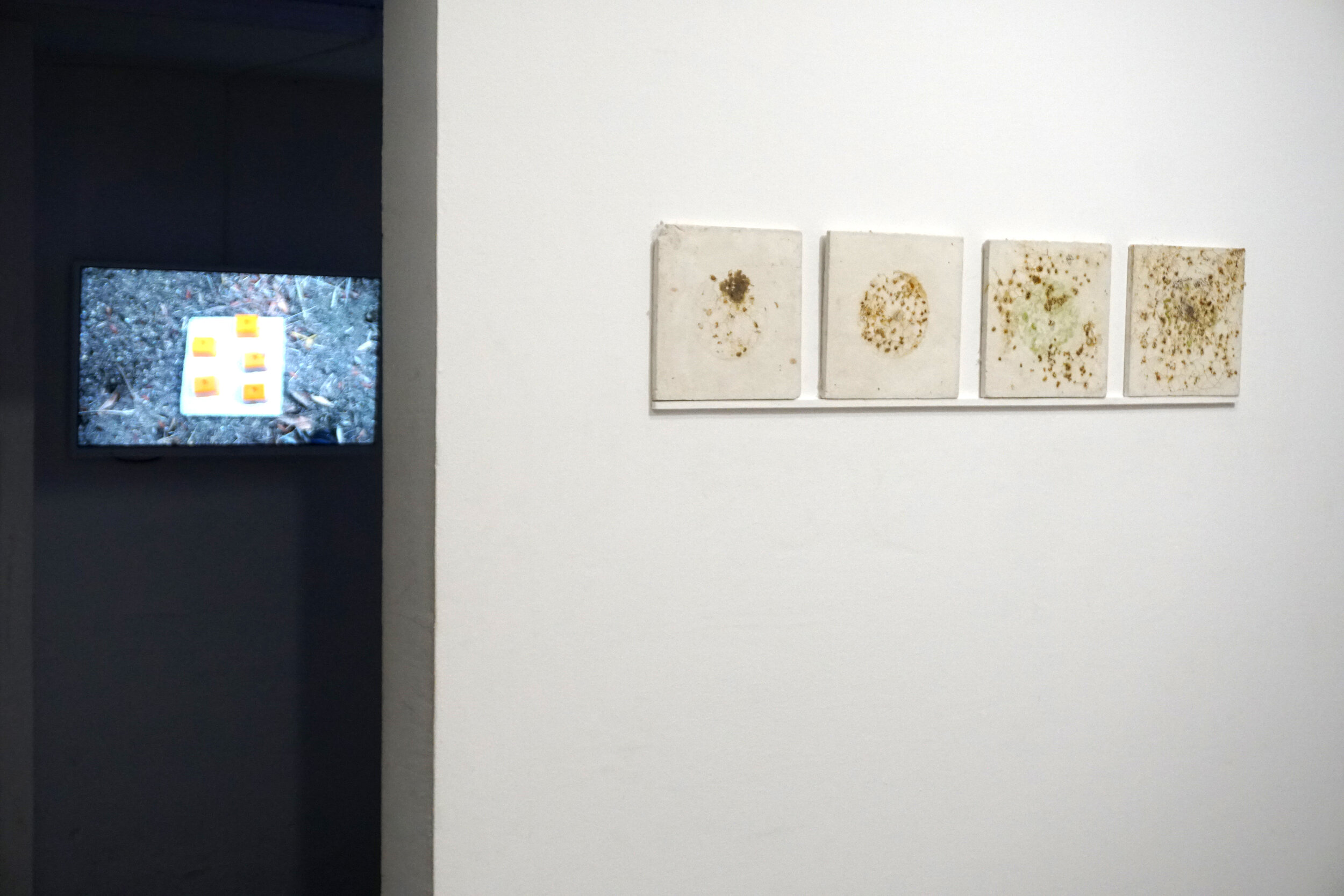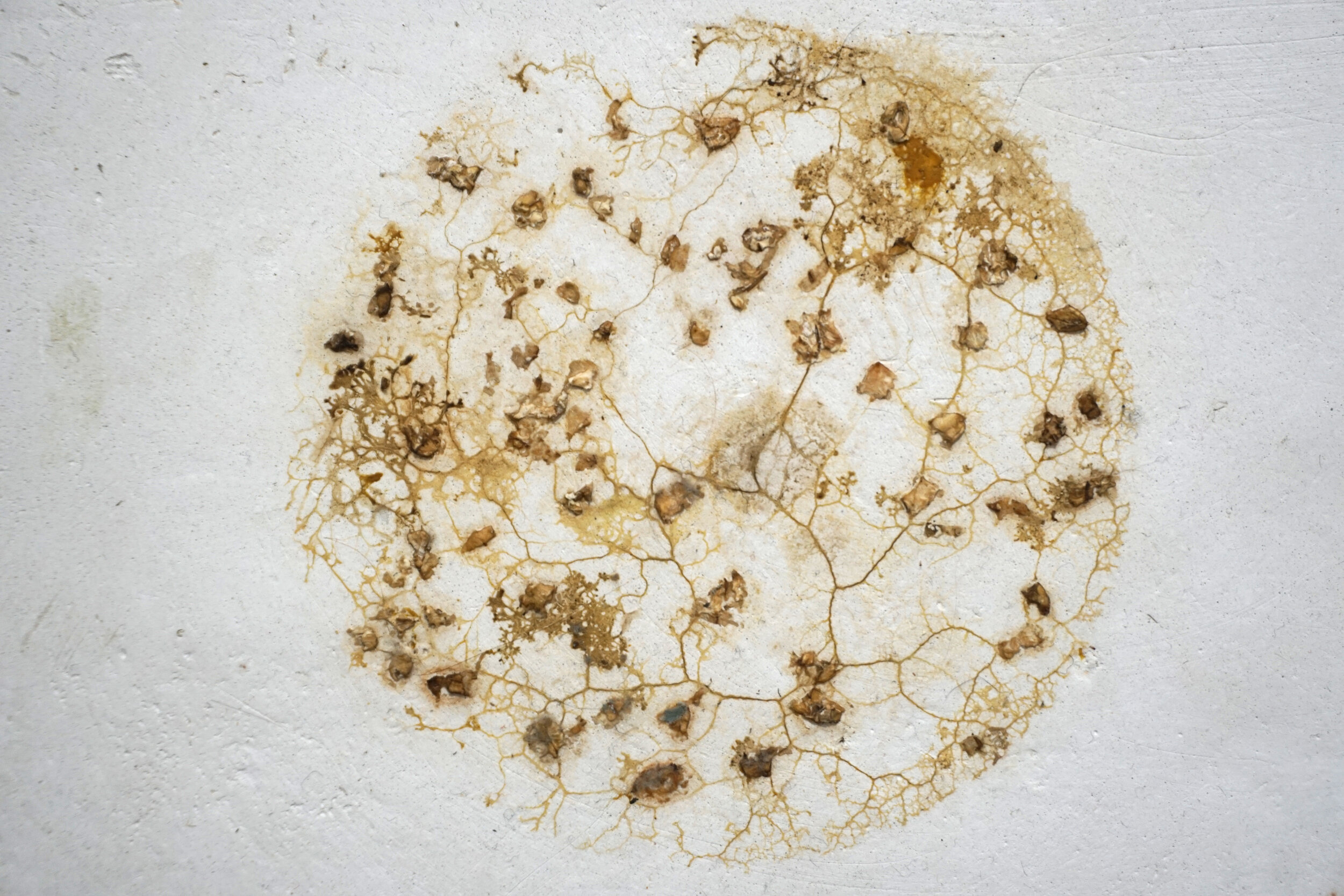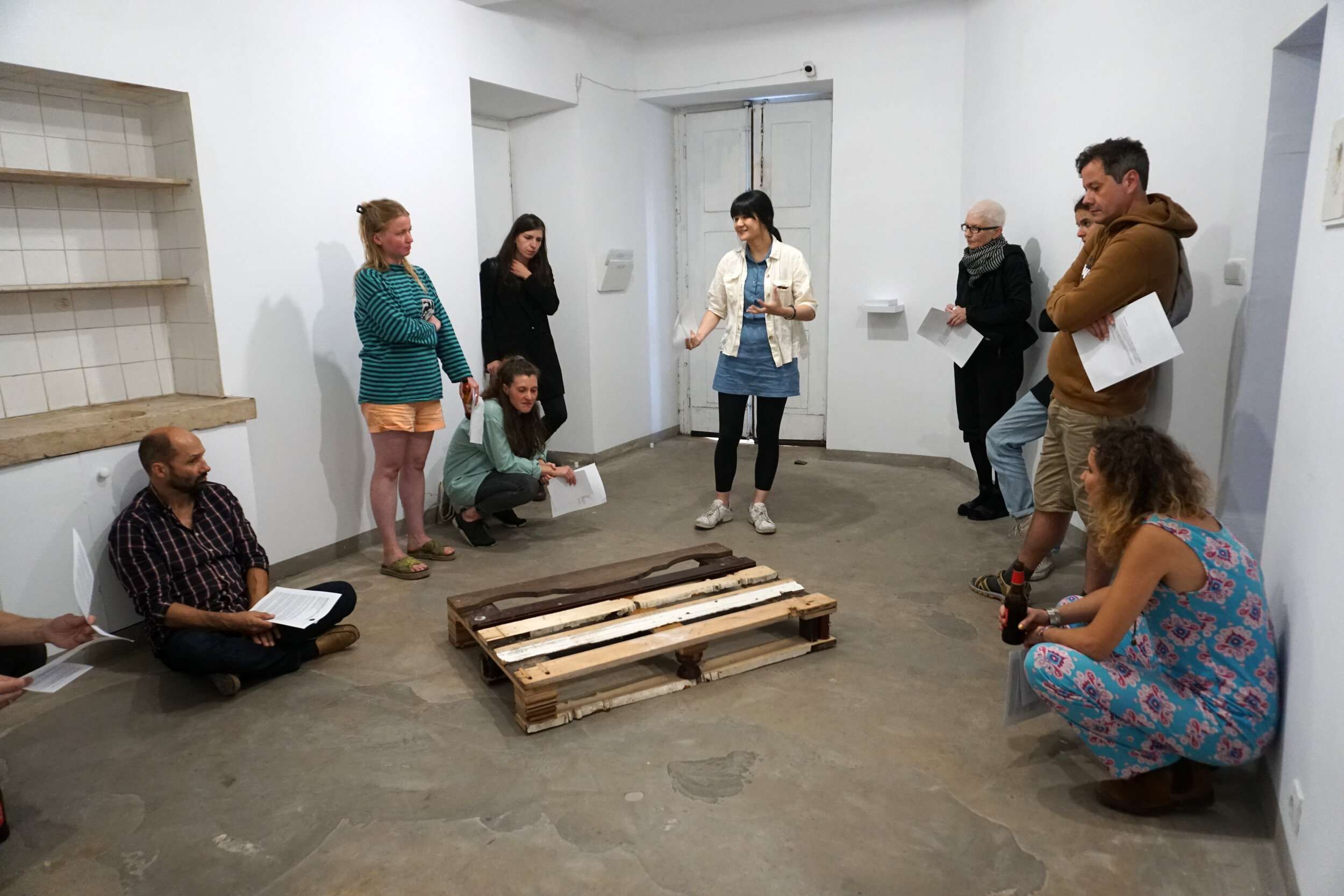Catalyst At Lisbon: Radical Arcadia
3.10.19 - 20.10.19
Paddy Bloomer, Jasmin Märker, Isabel English, Hayley Gault & Michael Hanna
Zaratan - Arte Contemporânea, R. de São Bento 432, 1250-221 Lisboa, Portugal
Presented by Catalyst Arts, Belfast
EXHIBITION OPENING | October 3 at 7pm
HOURS | Thursday to Sunday 4-8pm
SPECIAL EVENTS | Saturday 5 October
Meet the Curators Edy Fung & Leah Corbett, 5pm
Artist Talk by Jasmin Märker, 5:30pm
Audio Session - ‘Goat Music’ by David Shrigley, 6:30pm
‘Radical Arcadia’ is an interdisciplinary project presented by Catalyst Arts, an artist-led non-profit organisation based in Northern Ireland. Together with Belfast-based artists Paddy Bloomer, Jasmin Märker, Isabel English, Hayley Gault & Michael Hanna, the project investigates and questions the idea of Arcadia as the poetic shaped space of harmonious living between humans and nature.
Arcadia, refers to an idealistic vision of Pastoralism and harmony with nature. The idea of Arcadia was born from early civilisation but appeared as a Utopian idea rather than a physical condition. It has been written in literature, captured in paintings - more or less as a mythical imagery yet to be discovered by mankind.
What are our current ideals in relation to the environment around us? Today in the UK, rural gentrification is taking place in which ‘natural living’ is marketed as a desirable lifestyle and purchased by those who can afford it; while in the US, wilderness parks are created as a capitalist commodity and people are charged for consuming the experience within it. Paddy Bloomer demonstrates his attempt at spending a night in Lough Allen, the countryside of Ireland, on his self-built ‘Deployable Crannog’. The video documentation shows the process of building the structure from scratch with found industrial detritus, and the experimental sailing and inhabitation of this adequately-functional crannog. The artist refers to this inquiry of the revival of an ancient Irish typology of dwelling, as ‘a humorous and critical challenge to the dysfunctional and irrational technologies that drive societal change’.
‘Downcycled Pallet’ is a new work that Paddy Bloomer has made on-site in Zaratan during his time in Lisbon. He has provided an instruction manual which will guide visitors to create a DIY pallet of their own. (https://www.instructables.com/id/Downcycled-Pallet/). The nomadicity suggested by this archetype for transportation is echoed in Isabel English’s proposal for a place for spontaneous interaction and moveable architecture. Her series of drawings ‘un(set)’ revisits and extends on the architect Claude-Nicolas Ledoux, a precursor of utopian city. Adapting the idea of the architect’s notebook of unbuilt dreams, she deconstructs architectonic elements from the ideal space and objects, natural or constructed, offering the visitor an alternative arcadia unbounded by time, location or scale.
‘Lagan Weir’ reads beyond the surface of the main river in Belfast, and focuses on how the function and symbolism of the river is shaped and co-created by man-made system and activities in time. Over the centuries, its course has been reshaped by capitalism, through land reclamation and other coastal infrastructure projects. Michael Hanna is interested in how this highly-regulated volume of moving water has the ability to transcend the analytical logic of the camera’s artificial eye or the systemic efficiency of human control to enter a symbolic, subconscious space that lies beyond the limits of language. The river’s hyper-dynamic surface holds invisible life and unseen dangerous depths; an eternally unknown primal place of mysteries and legends.
Hayley Gault perceives the imagery of the natural landscape as the urban idealised iconography of rural Ireland - romanticised labour represented through objects such as smallholdings and cottages. Taking the emptiness and disconnection from the lived realities as a symptom of the notion of ‘Arcadia’, this veneer of rural bliss is negated within her written work ‘Things me and my father have in common’, through the inclusion of the transparency of the labour, time, editing and conditions under which the works were produced, and highlights the importance of the acknowledgement that our rural landscapes are not only natural, but are inherently man-made. In aiming to interrogate and open up conversations surrounding contemporary cultural managerialism within a rural context, she wants to make clear the social, mental and environmental ecologies that actively inform this rural context. The work embodies a meditation on how the local, rural and personal are offered as a valuable resource and asks how disparate practitioners can find meaning and connection in a globalised society, to not only one another, but to the natural world and our place within it.
Jasmin Märker examines how economic productivity of nature shapes our perception of it being good or harmful, and how these anthropocentric viewpoints influence our research, spiritual beliefs and politics. ‘Slime Dynamics’, borrowed from Ben Woodard’s book of the same title, is a series of experimental works resulting from Jasmin’s residency at Zaratan. During this she explored how our conceptions of time affect our response to environmental as well as sociopolitical problems. Reflecting on the links between our ideas of continuous economic growth and evolution as perpetual increase of complexity, Jasmin investigated the dynamics of algae blooms, gentrification & other ‘attacks’ and ‘invasions’ through field and theoretical research, interviews, as well as playful art & science experiments.
Jasmin would like to give special thanks to Luís Mendes, Ana Gago, Pedro Guimarães for sharing their knowledge on gentrification in Lisbon as well as Ricardo Melo & Mariana Santos for showing her the Algae Culture Bank at MARE and giving insights into Harmful Algae Bloom research.
This exhibition would not be possible without the support of British Council and Culture Ireland. Special thanks to Arts Council of Northern Ireland, the principal funder of Catalyst Arts.
Artist Biographies
Paddy Bloomer is an artist, inventor, explorer and plumber based in Belfast. Bloomer studied Fine and Applied Art at University of Ulster, Belfast in 2000 and 2015. He has exhibited extensively in Ireland and abroad including: The Imagined City Bus Tour, Household, Belfast, 2016; Tang, Geopark Festival, Korevlerne, Denmark, 2015; How things might go, Belfast International Festival of Performance Art, T13, Belfast, 2015; Meat Clunk, Golden thread Gallery, Belfast, 2015; Vstop prost / Admission free, Celje, Slovenia, 2010; L’art en Europe, Domaine Pomery, Rheims, France 2008; Anticipation, Museum of Contemporary Photography, Chicago, 2006 and The nature of things, Northern Ireland at Venice, in collaboration with Nichols Keogh, EV+A, Limerick City Gallery of Art, Limerick, 2005.Working extensively in the public realm Bloomer’s public art and outreach commissions include: Tchimi public art commissions for An Munia Tober Belfast; Machinations. Various projects working with Mens Sheds groups for Big Telly 2009; Ariel photography workshop, Belfast photo festival, 2014; Temporary places, Skegoniel, with PS2, Belfast 2013; Village works, Ballykinler, with PS2, 2011. Bloomer has also been a regular contributor to the Vacuum free newspaper in Belfast.
Isabel English is an artist curently living and working in Belfast. After receiving her bachelor’s degree from Crawford College of Art and Design, Isabel went on to take up residence in the National Sculpture Factory after she was made recipient of their Graduate Residency Award. It was here that she developed a set of research that led to her first solo exhibition titled Unclosed which was set on the grounds of the Fitzgerald’s Park, Cork in the Lord Mayors Pavilion. Alongside these achievements, she has also shown work in group shows at the Doswell Gallery, Rosscarbery and at Black Church Print Studios in Temple Bar with the show Homo Ludens (Man at Play), and was also one of thirteen graduates to be chosen to take part in the RDS Visual Art Awards, Dublin.
Hayley Gault is a freelance curator/ rural practioner/ farmer who lives and works between Belfast and Magheramorne. Her aim is to form a sustainable practice which expands concepts of artist, curator, researcher, producer, farmer, writer, and one which centers around environment, its ideologies, its futures, its realities and its practicalities, tracing contemporary modes of production of art, culture and food. Previous projects include, curating UK-based artists for issue two of Bristol's Rung Magazine, co-curation of material conditions with artist Alex Brunt and Engage Studios Galway, and international group show domestic affairs, both within Platforms Arts Belfast.
Michael Hanna has completed a BA in Sculpture at Edinburgh College of Art and an MFA at the University of Ulster in 2012. He has exhibited in group exhibitions in the UK and internationally including Rencontres Internationales at Haus der Kulturen der Welt, Berlin and Multiplicity at NURTUREart, New York. Recent solo exhibitions include Short Films about Learning at Lismore Castle Arts, Waterford, and Predictable Contact at the Naughton Gallery, Belfast. Michael is a co-founder of AMINI, an artist led initiative for the promotion and critical discussion of artists' moving image in Northern Ireland. AMINI hosted Northern Ireland's first artists' moving image festival in 2017, and runs the LUX Belfast Critical Forum. In 2018 Michael was selected for the Freelands Artist Programme, a 2 year fellowship with PS2, Belfast and Freelands Foundation, London.
Jasmin Märker is an interdisciplinary artist working at the intersections of bio-art, installation and performance. She frequently collaborates with members of the microbial kingdoms to explore holistic approaches to sustainability, and draws from biopolitical and environmental-philosophical concepts to propose alternative, non-human-centric perspectives. Jasmin received a BA in Fine Art from Ulster University in 2016 and works from Vault Artist Studios in Belfast. Since graduating, she has shown work in exhibitions such as Kills 99,9% of Bacteria at CCA Derry-Londonderry, And There Was Light… at Platform Arts, Belfast, Vibrant Matter, part of the 2019 Belfast Science Festival, and Supermarket Art Fair in Stockholm. Since 2017, Jasmin has undertaken various residencies such as Interface Residency - where art meets science; a Professional Development Residency at Leitrim Sculpture Workshops.
